Drug Addiction Treatment in Springfield
Springfield drug rehab for in-patient and out-patient drug detox and alcohol treatment. Addiction and chemical dependency recovery program near Springfield MA. Drug and Alcohol Rehabilitation techniques used in our Hampden rehab and detox centers near Springfield. Programs for drug and alcohol abuse that include inpatient and outpatient recovery for addiction are explained as well as the benefits and drawbacks of both. Many health insurance providers will pay for alcohol and drug rehab. Call us to find out what options are available for you.
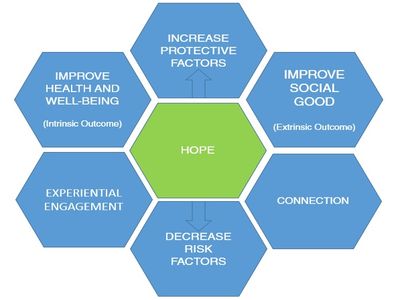
Mental Dependency – What Is Psychological Dependency?
The term psychology is usually meant to refer to behavior processes that connect to the emotions or the mind. The term emotional dependence is generally suggested to describe the psychological and psychological procedures that are associated with the growth of, and recovery from, a material usage condition or chemical addiction.
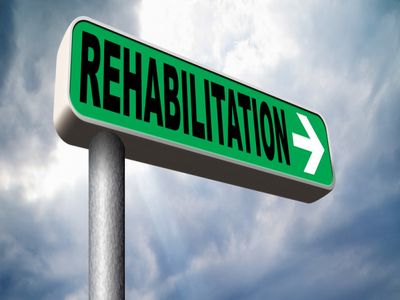
Materials associated with Mental Dependency
The basic observation here is that all materials of misuse are associated with both mental and also physical aspects of reliance; nonetheless, many resources separate the elements of the growth of a material usage problem and the withdrawal procedure into materials that are related to withdrawal signs and symptoms that are mostly mental in nature. Commonly, these materials include:
A lot of stimulants, including drug and Ritalin
A lot of hallucinogenic drugs, such as LSD
Marijuana products (although there is mounting proof that there may be a substantial physical process of withdrawal that takes place in persistent individuals of cannabis products).
Numerous inhalant items.
Lots of psychotropic drugs, such as antidepressant medications.
Treat of psychological reliance
One very important difference that could be made concerning the distinction in between medications that are taken into consideration to lead to physical versus emotional dependency is that the withdrawal process from some of the drugs that are thought about to be solid candidates for physical dependence, such as alcohol, benzodiazepines, and also barbiturates, could cause the advancement of potentially deadly seizures. This condition does not normally take place with withdrawal from opiate medications, which are also considered to be incredibly literally addictive. The recovery procedure for people that have actually developed compound usage problems to these compounds must be purely checked by a physician or psychoanalyst that focuses on dependency medication to identify any kind of potential seizure task and also instantly resolve it.
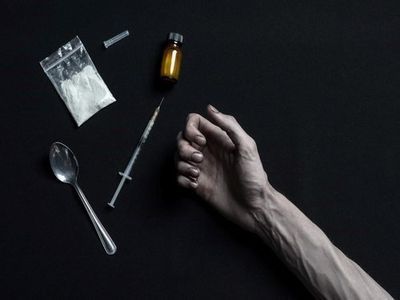
Types of Treatment in Springfield
Medications
Numerous medicines have been found to be reliable in treating addiction to opioids, alcohol, or pure nicotine in adults, although none of these medications have been approved by the FDA to deal with teens. Just preliminary evidence exists for the performance as well as safety of these medicines in people under 18, and also there is no proof on the neurobiological influence of these drugs on the creating brain. Nevertheless, in spite of the relative absence of evidence, some healthcare service providers do make use of medicines “off-label” when dealing with teenagers (especially older teenagers) that are addicted to opioids, pure nicotine, or (less generally) alcohol. More recent substances remain to be studied for possibly treating compound usage conditions in adults and adolescents, yet none aside from those listed right here have revealed conclusive outcomes.
Note that there are currently no FDA-approved medications to deal with addiction to cannabis, drug, or methamphetamine in any age group.
Buprenorphine lowers or gets rid of opioid withdrawal symptoms, including medicine food cravings, without creating the “high” or harmful side effects of heroin and also other opioids. It does this by both activating as well as blocking opioid receptors in the mind (i.e., it is exactly what is known as a partial opioid agonist).

Methadone additionally prevents withdrawal signs and symptoms and decreases yearning in opioid-addicted people by triggering opioid receptors in the mind (i.e., a complete opioid agonist). It has a long history of usage in treatment of opioid dependency in grownups and also is readily available in specifically licensed methadone treatment programs. In choose situations as well as in some States, opioid-dependent adolescents between the ages of 16 and also 18 may be qualified for methadone therapy.
Residential Drug Rehabilitation in Springfield
A research in the journal Addiction shows that people that obtain help with healing from addiction are most likely to remain in recovery for longer periods than those that do not receive treatment. Sixty-two percent of those that had expert help in treating their dependency remained in healing for three years after treatment, compared to only 43 percent of those who didn’t get therapy. In addition, 57 percent of those that made it three years were still free of the material after a total of 16 years. This reveals that getting expert treatment is vital to reaching the most effective end result.
Residential Springfield drug rehab particularly is typically more handy due to the fact that it requires that the individual stay in treatment for the quantity of time necessary to influence adjustment.
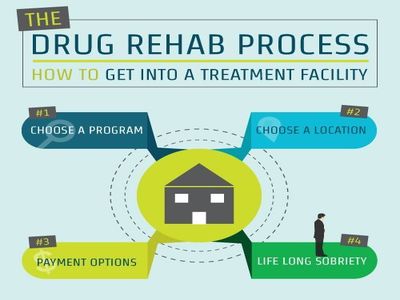
In the NIDA write-up it is mentioned that a necessary element of medicine dependency therapy is staying in therapy long enough to finish the various components of the program, because this enables individuals to arise with the highest level of confidence in their recently learned abilities and also devices for continuing to be in recovery. Because of this, each of the elements of a top notch therapy program functions best when it is created to help individuals get through the entire treatment procedure.
Residential rehab supplies 24-hour treatment in a setting where the emphasis is helping individuals accomplish and also keep recovery from drug addiction. As a result of this, these programs have the ability to use a breadth of solutions that are most likely in order to help clients create capabilities as well as devices to remain in recovery well after leaving the program. These consist of:
Clinically supported detox and withdrawal, if required.
Clinically sustained upkeep care, if needed.
Individual therapies, such as Cognitive Behavior Modification.
Family members or couples counseling.
Building abilities and tools that are essential forever post therapy.
Follow-up treatment after the formalized program ends.
Outpatient Rehab
Outpatient rehabilitation permits clients to live at home and join therapy at an outpatient center during the daytime. This sort of program manages individuals much more flexibility in treatment, providing clients the ability to keep a work and also stay on par with daily responsibilities at home. Those simply beginning outpatient care may need daily sessions with a specialist or scientific personnel, while those more along in recuperation (or with less severe dependencies) may achieve success with part-time sessions once or twice per week.
Outpatient programs usually last anywhere from one to three months, as this is the home window of time in which those in recuperation are most susceptible to relapse. The size of time a client spends in outpatient treatment relies on their progress in recuperation, which takes into consideration their psychological stability as well as physical wellness.
An outpatient drug rehab program offers drug and alcohol treatment sessions that can be scheduled throughout different times throughout the week. This schedule allows individuals to continue with their routine duties and proceed living at home, but they are needed to look into treatment at their designated times for therapy and also medication.
Recuperation
Recuperation is an objective of alcohol therapy, as well as recovery-oriented systems of treatment are being established to sustain that goal. People that are “in recovery” know just what it suggests to them and also exactly how crucial it remains in their lives. They require no formal definition, however, for the general public and those who study, evaluate, and also develop policies concerning addiction, healing is an idea that can often appear unclear.
Essentially, recuperation is a complex and dynamic process incorporating all the positive advantages to physical, mental and social wellness that could occur when individuals with an addiction to alcohol or medications, or their member of the family, get the aid they require.
Therapy
Counseling is an essential part of substance abuse therapy for many people. Cognitive behavioral therapy, family counseling, and also other therapy methods could aid people recouping from opioid dependency keep clean.
Twelve-step Programs
The 12-Step ideology spearheaded by Alcoholics Anonymous is used by about 74 percent of therapy. Many dependency therapy programs use options to 12-Step approach for those that prefer an even more secular structure for therapy.
SMART Recovery
SMART Recovery is an abstinence-based, not-for-profit company with a practical self-help program for people having troubles with drinking and also making use of. SMART Recovery is not a spin-off of Alcoholics Anonymous. When you succeed at following our strategy, you could graduate from the program, or you may stay around to assist others.
Client-centered methods
In client-centered chemical abuse therapy, you can help made a decision things about your medicine dependency therapy strategy including:
- The pace at which you proceed.
- The size of your stay.
- The objectives of your program.
Along with specialist personnel the addict determines exactly what they intend to get out of their remain. Each week, you and also your personal specialist will certainly assess your medicine dependency therapy and decide whether or not you are reaching your goals, failing or exceeding them and also adjust your therapy plan accordingly. The partnering is truly crucial right here- your goals are your roadmap with therapy.
Psychoanalysis
The psychoanalysis view recommends dependency is essentially a disorder of self-regulation. Dependency is referred to as a defensive strategy to prevent sensation of vulnerability or powerlessness. Drug abuse is a futile effort to compensate for inner vacuum without success. The addict aims to compensate by means of addictive habits for agonizing subjective states of reduced self-worth, uncertainties as well as anxiety. The use of medications provides a sensation of acceptance and also sensation of short-lived sure of oneself. Addict replaces a fictional world, where he is in complete control, for the real world, where he really feels pointless as well as unmanageable. Duplicated use medicines to gain alleviation becomes a way of life. Alleviation is brief, yet in the long-term drug use comes to be an end in itself. The addiction problem stops the user from understanding regarding her distress, as well as the development of emotional capacity to self-soothe.
Relapse prevention
An influential cognitive-behavioral method to addiction recovery as well as therapy has been Alan Marlatt’s (1985) Regression Avoidance technique. Marlatt defines four psycho-social processes pertinent to the addiction as well as regression procedures: self-efficacy, result spans, attributions of causality, as well as decision-making processes. Self-efficacy describes one’s capacity to deal capably as well as effectively with risky, relapse-provoking situations. Outcome expectancy refer to a person’s expectations about the psychedelic effects of an addictive material. Acknowledgments of origin describe a person’s pattern of ideas that relapse to substance abuse is a result of interior, or rather external, short-term reasons (e.g., enabling oneself making exemptions when faced with what are evaluated to be uncommon situations). Finally, decision-making processes are implicated in the relapse procedure too. Substance usage is the outcome of numerous decisions whose collective effects lead to intake of the intoxicant. Furthermore, Marlatt worries some decisions- referred to as obviously unimportant choices- could seem irrelevant to relapse however may actually have downstream ramifications that put the user in a high-risk situation.
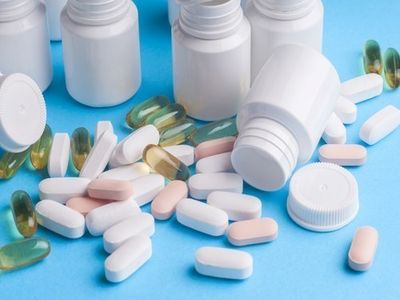
As a result of hefty freeway traffic, a recovering alcoholic may determine one afternoon to exit the freeway and travel on side roadways. If this individual is able to utilize successful coping approaches, such as sidetracking himself from his food cravings by transforming on his favored songs, after that he will prevent the relapse threat (COURSE 1) and increase his efficacy for future abstaining. If, however, he lacks dealing mechanisms- for circumstances, he might begin ruminating on his desires (COURSE 2)- after that his efficiency for abstaining will reduce, his assumptions of positive results will raise, and he could experience a lapse- an isolated return to substance intoxication.
Dual Diagnosis Explained
When a client is diagnosed with both a substance abuse disorder and also a mental wellness problem, after that it is labelled a Twin Medical diagnosis. Usual psychological wellness conditions that tend to happen along with dependency include:
- Anxiety problems.
- Moderate to extreme clinical depression.
- Individuality disorders.
- Mood conditions.
- Schizophrenia.
As they come to be more as well as extra frustrating, the individual could try to “deal with” those symptoms by utilizing various drugs. Conversely, somebody dealing with an eating disorder may try to further their weight loss efforts by abusing stimulant medications like drug or crystal meth.
In various other situations, the drug addiction comes first and also because of persistent substance abuse, psychological health concerns could develop later on as a result of that drug use modifies mind function gradually.
Sober Living Home
Sober living residences are group homes for those recouping from a dependency. A lot of these houses are independently owned, although some group homes are had by companies and also might even be possessed by charity companies. Houses are usually found in peaceful locations to assist make certain a relaxed atmosphere for people in early recovery.
These kinds of homes are different from rehab facilities; rehab centers normally provide an even more extensive recovery experience and also give citizens much less flexibility. Citizens could also be subject to periodic medicine testing to demonstrate continuous sobriety.
